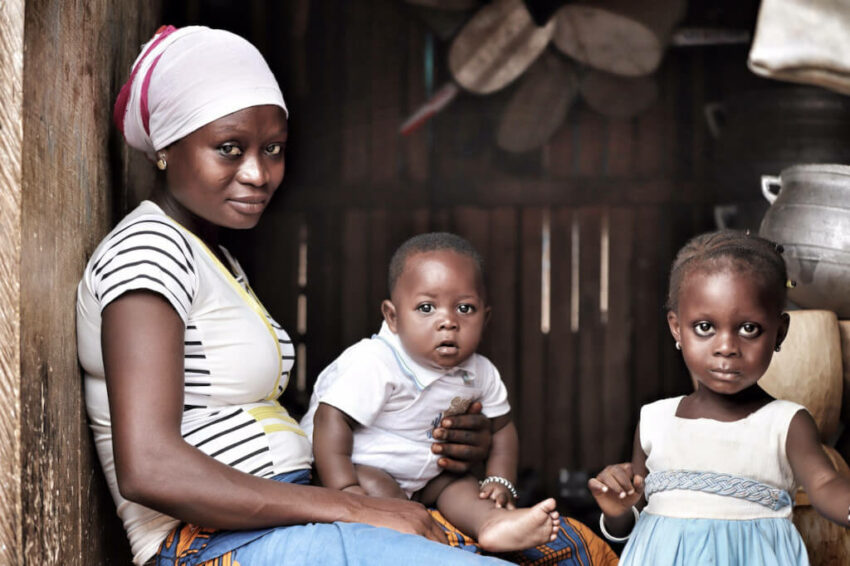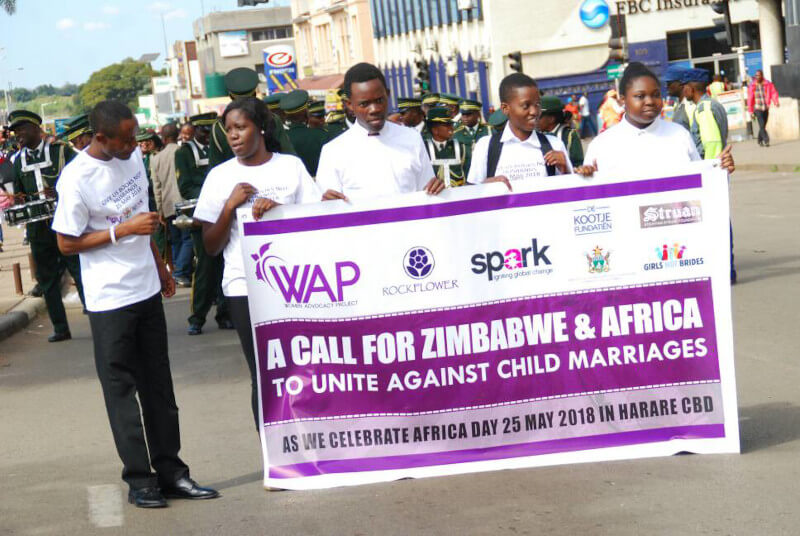Girls in Africa Face Significant Repercussions if They Enter Into Child Marriages
- by Mamparra

More than 650 million women and girls who are still alive today got married before they turned 18 years old. This is one of the shocking statistics that can be found in a report on child marriage published by UNICEF in 2021. Nine of the ten countries on the planet with the highest levels of child marriage are located in the sub-Saharan region of Africa.
Such early marriages are usually ingrained because of deeply embedded cultural practices and traditions. In 146 countries, state or customary law allows girls younger than 18 to marry with the approval of their parents or other officials. This number does not include the United States. There are 52 countries in which girls as young as 15 can marry if their parents give their consent. It’s not uncommon for boys to get married when they’re still in their teens, but the numbers are significantly lower for them compared to those for girls and young women.
In addition, girls and young women are the ones who end up shouldering the majority of the financial burden associated with early marriage. Girls who marry before the age of 18 have a greater risk of experiencing domestic violence and a lower likelihood of continuing their education compared to their peers. They suffer from worse health and financial outcomes, which is a burden that they almost certainly will hand down to their offspring.
There is a correlation between getting married at a young age and the children of that woman having lower levels of intellectual growth and stunting. Presently, the practice is on the decline as a result of policies at the national and international levels, global agreements, and the UNFPA-UNICEF Global Programme to End Child Marriage, which has been running since 2016. However, progress in sub-Saharan Africa has been rather sluggish.
What Exactly is It That Makes the Practice Popular in This Area?
In a recent study, we focused specifically on this question. We used statistical analysis to investigate the economic and demographic factors that play a role in the decision of young women in the Democratic Republic of the Congo (DRC), Malawi, Mali, and Niger to get married at an early age. Each of the four nations has tried to implement policies that reduce the prevalence of child marriage, but the obstacles that they face continue to be formidable.
We investigated several potential causes and variables, including age at the first sexual encounter, level of education and numeracy, women’s current age, territory and type of residence, inherited wealth index, ethnic background, work status, and even exposure to the media in the public sphere.
Education is the one factor that stands out across all four countries that we investigated in this study. Women who have not finished secondary or higher education are more likely to get married at a younger age than women who have completed such education.
The Four Countries Under Study
The four nations share a great number of characteristics, including high rates of poverty, significant under-15 and rural populations, and substantial numbers of people. About half of the population in each nation is under the age of 15, and approximately half of the population in each nation lives in rural areas (except Malawi, which has an urban population that is 84%).
Niger, one of the four nations included in our research, has the highest rate of child marriage anywhere in the world: 76% of girls are married before they reach the age of 18. The current rates are 52% in Mali, 42% in Malawi, and 37% in the Democratic Republic of the Congo.
To conduct this analysis, we referred to the most latest health and demographic surveys that were made available in each of the 4 countries. Following this, we implemented a framework that attempts to describe the significant cultural and cognitive factors, as well as their interconnections, that are the basis for behaviors and decisions about reproductive health.
Quantitative Variables
The reasons that we discovered why marriage at a young age is so prevalent in these countries weren’t always cut and dried when we looked into them. In addition to this, there were a lot of statistical differences and contradictions between the four countries, which was to be anticipated.
As an illustration, the typical age of a person’s first marital relationship ranged from 15.3 years old in Niger to 17.1 years old in Malawi. There was also a wide variation in the percentage of women from the lowest wealth classification in the countries who had already tied the knot by the age of 18: Niger (90.9%), Mali (80%), DRC (70.3%), and Malawi (63.1%).

The percentages of early marriage decreased among many women from wealthier categories, but they remained high: 72.7% of women in Niger, 65.4% of women in Mali, 60.3% of women in DRC, and 42.5% of women in Malawi. The research also revealed that young women who lived in rural areas had a higher likelihood of getting married at an earlier age than their urban counterparts.
The socioeconomic, financial, and cultural foundations of these variations are probably complicated and would require some unpacking on the part of the reader. For example, in some societies, girls are married off at a young age because it is believed that they have a greater chance of still being virgins, and as a result, they can command a higher payment of what is regarded as the bride price.
The correlation that we found between levels of education and the typical age of a person’s first marriage was one of the many statistical factors that emerged, and it particularly stood out to us.
The Function of Learning in the World
We discovered that the average age of a person’s first marriage expanded from young individuals who had no schooling in Niger, Mali, the DRC, and Malawi (15.1, 15.4, 16.2, and 16.4, respectively) to individuals who had secondary and higher levels of education in those same countries (17.0, 16.6, 17.1 and 18.5 in that order).
Furthermore, we discovered that the rate of early marriage (before the age of 18) was greatest among young women who had not completed secondary education (90.6%, 80.3%, 70.9%, and 70.3% respectively). The rate was the lowest among women who had completed secondary and higher education (64.2%, 62.9%, 58.9%, and 30.2%, respectively). Only in Malawi, one of these four countries is primary and secondary schooling not only free for all children but also easily accessible.
Education opens up doors for young women to pursue in their lives. It is believed that an educated woman has a lower chance of finding a husband and is less likely to be a suitable wife in some African cultures. As a result, it is discouraged to allow girls to complete or even stay in school in these societies.
The rate of young marriage in Malawi is the 12th highest in the world, and less than 15% of women in the country have completed any level of secondary education. In addition, 42% of girls get married before reaching the age of 18 in Malawi.
What Comes Next
There is an immediate need for the governments of these nations to implement programs that encourage postponing the age at which girls have their first experience with sexual activity and to provide adolescents with information concerning sexual activity that is both responsible and safer. Adolescent girls should be encouraged to stay in school as long as possible, and policymakers should work to make that happen. In addition, laws that make the marriage of minors illegal are required, and these laws must be upheld.
More than 650 million women and girls who are still alive today got married before they turned 18 years old. This is one of the shocking statistics that can be found in a report on child marriage published by UNICEF in 2021. Nine of the ten countries on the planet with the highest levels of…
Recent Mamparras
- Zwai Bala – The Musical Pioneer Who Helped Shape South Africa’s Sound
- Is This the Worst Own Goal Ever? Watch and Decide
- Mamparras Spend R7.7 Billion From 25th to the 31st of December 2024
- Why Do Liberals Think Trump Supporters Are Mamparas?
- Indepth Look at the Online Thrill to Grill Casino Game
- Artist Discovers 2000yo Roman Bust at Texas Goodwill for $34
- Nobuntu (Mamparra-nobs) Mkhize Disrupts FlySafair Flight – Gets Arrested
- Oscar Pistorius Walks Free, But Where is Reeva’s Justice?
- The Accidental Aboriginal’s Legacy
- The Origins of Oktoberfest
- Fascinating Quick Facts
